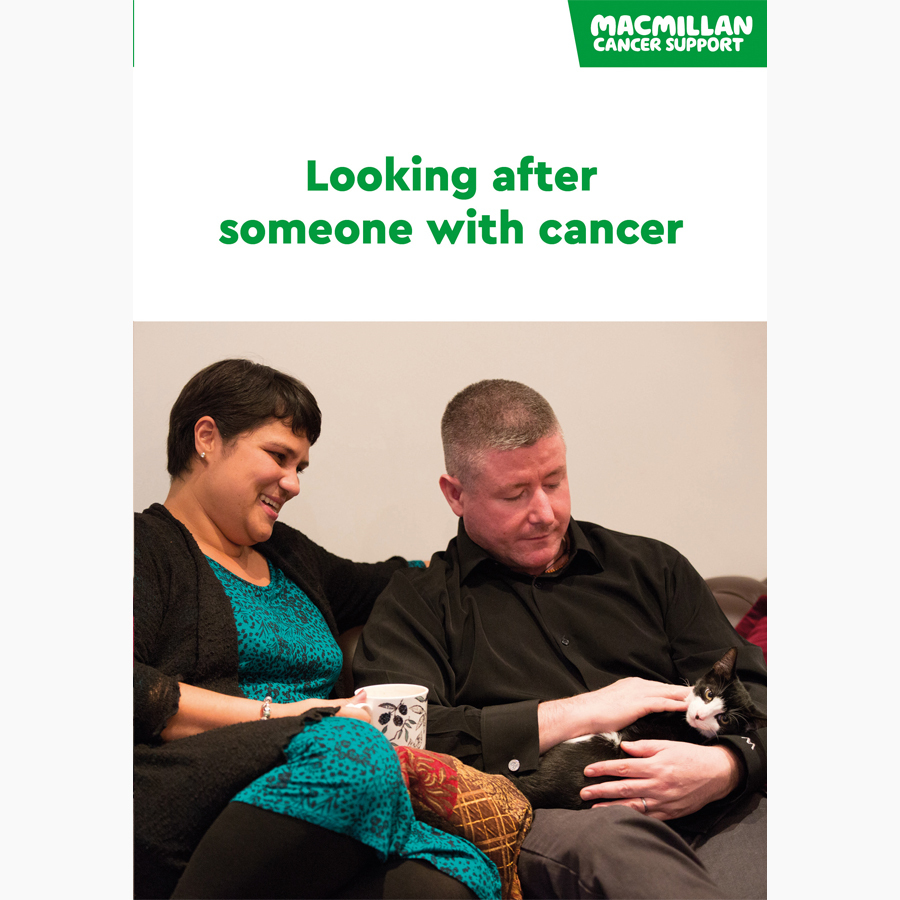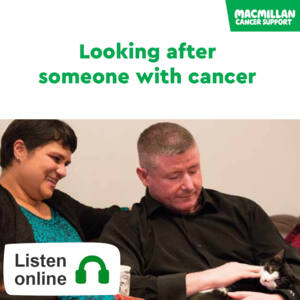Looking after someone with cancer
What is a carer?
You may not think of yourself as a carer. You may think that because you are a partner, sibling, parent, child, friend or neighbour to the person you look after, you are not a carer. But you are a carer, even if you are close to the person you look after.
Understanding that you are a carer can be an important step in getting the extra help and support you need.
You are a carer if you give any unpaid help and support to someone with cancer who could not manage without your help.
Being a carer for someone can mean:
- emotional support
- helping with daily tasks
- driving them to appointments
- talking to other people on their behalf, such as health and social care professionals
- helping with personal care such as bathing and dressing.
Caring for someone with cancer
If the person you look after is in hospital, help and support is usually arranged before they go home. Tell the healthcare team that you are a carer, so that you can be part of the plans for going home.
How much care you provide can change over time. You may do less if the person you are caring for has finished cancer treatment and are is recovering. Or you may do more if their cancer becomes more advanced.
We have more information about planning ahead for the future.
Related video
Coping with being a carer
Every caring situation is different. Your responsibilities will depend on what the person needs, and what you are able to offer. You may share caring with family or friends, or you may be the main carer.
Being a carer can be rewarding. But the physical and emotional demands can be difficult. You might have a lot of different emotions. Getting support and having someone to talk to about how you feel might help you cope. It might help to talk and share experiences with other carers in our online community.
Related pages
Who can support me?
Different health and social care professionals will support you as carer. There are also organisations that can help, such as Carers UK and Carers Trust.
Any adult who cares for another adult can have a carer’s assessment to see what support may help.
It is important to accept help from others, such as family and friends. If you are finding it hard to cope, it is important to talk to people close to you and to your GP.
Becoming a carer can be a big change in your life. It can take time for you to adjust to the changes. It is important to look after your own wellbeing and health needs. You may have to balance caring with other things, such as working and other relationships.
As a carer you may also need financial support. You may also be able to get different benefits for carers.
If you are aged under 18 and looking after someone with cancer, you are a young carers. We have separate information for young carers.
Related pages
Cancer in later life
Cancer can develop at any age. But people who are older may have a different experience of cancer or have different needs.
About our information
-
References
Below is a sample of the sources used in our looking after someone with cancer information. If you would like more information about the sources we use, please contact us at cancerinformationteam@macmillan.org.uk
National Institute for Health and Care Excellence. Supporting adult carers committee. Supporting Adult Carers: NICE guideline [NG150] Published: 22 January 2020. Available from https://www.nice.org.uk/guidance/ng150 (accessed May 2022)
National Institute for Health and Care Excellence. People's experience in adult social care services committee. People's experience in adult social care services: improving the experience of care and support for people using adult social care services: NICE guideline [NG86] Published: 20 February 2018. Available from https://www.nice.org.uk/guidance/ng86 (accessed May 2022)
-
Reviewers
This information has been written, revised and edited by Macmillan Cancer Support’s Cancer Information Development team. It has been reviewed by expert medical and health professionals and people living with cancer. It has been approved by Chief Medical Editor, Professor Tim Iveson, Consultant Medical Oncologist.
Our cancer information has been awarded the PIF TICK. Created by the Patient Information Forum, this quality mark shows we meet PIF’s 10 criteria for trustworthy health information.
Date reviewed

Our cancer information meets the PIF TICK quality mark.
This means it is easy to use, up-to-date and based on the latest evidence. Learn more about how we produce our information.





